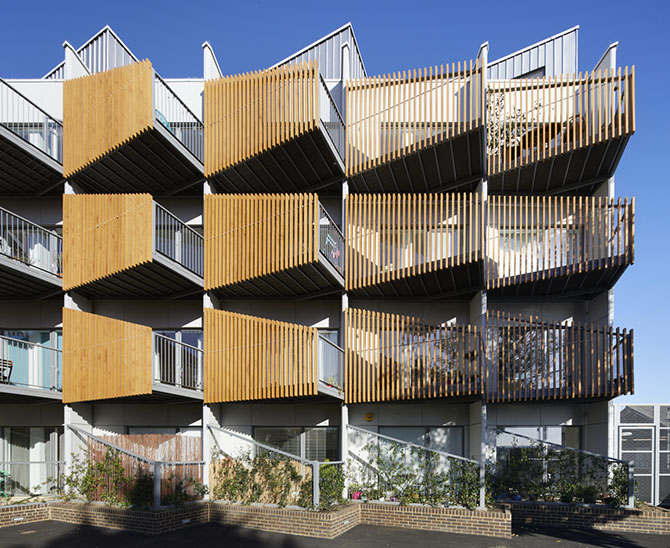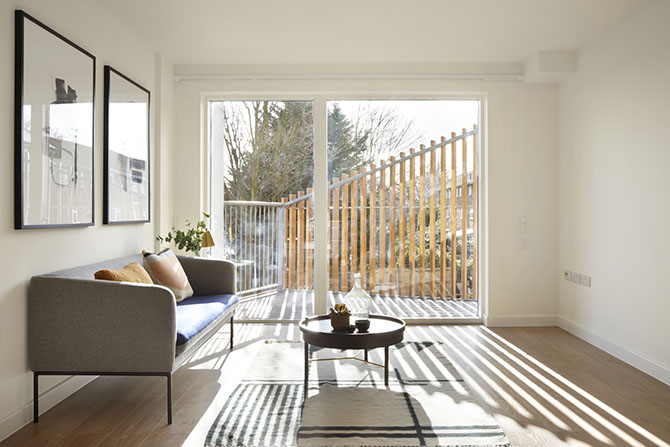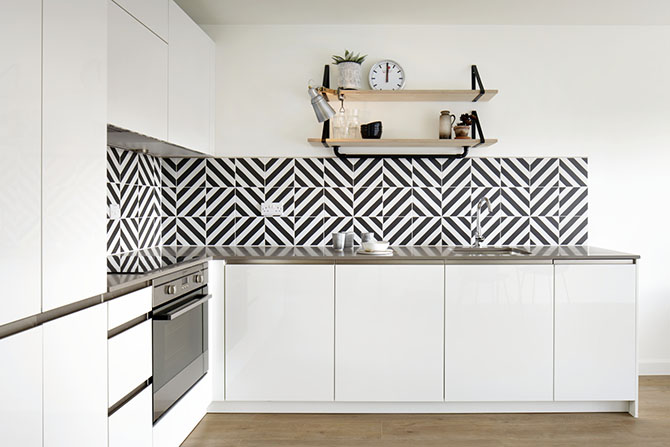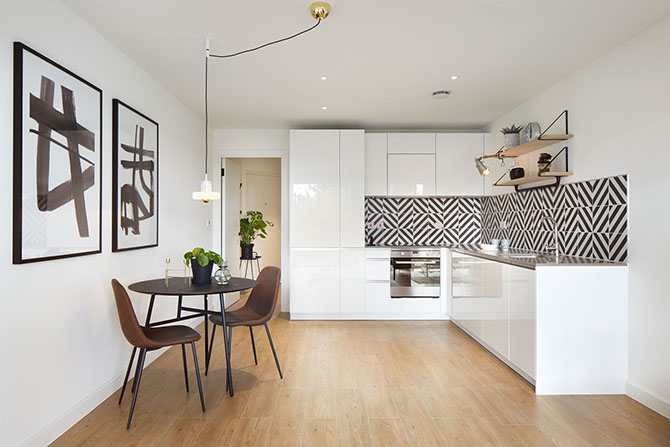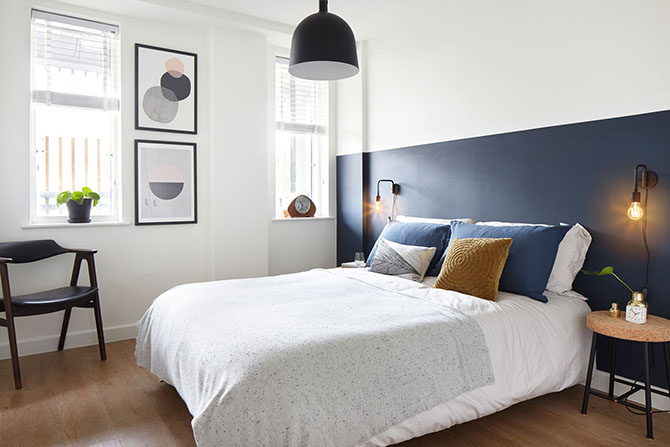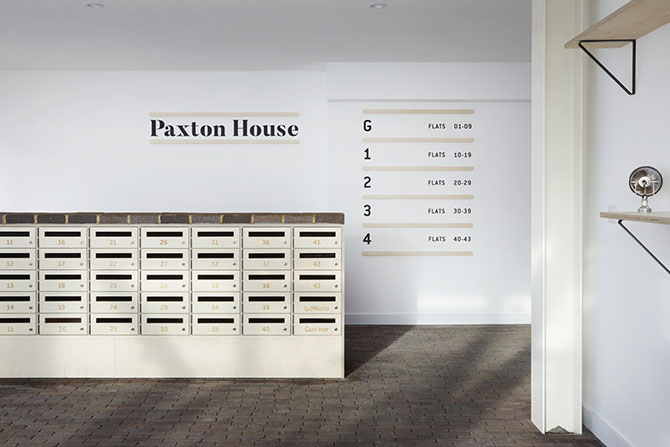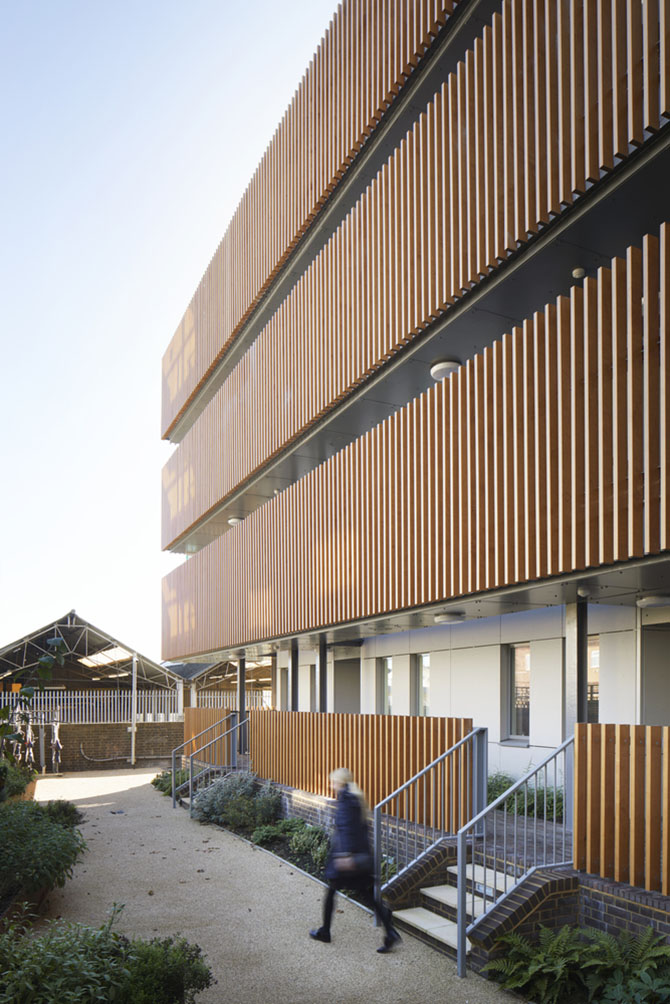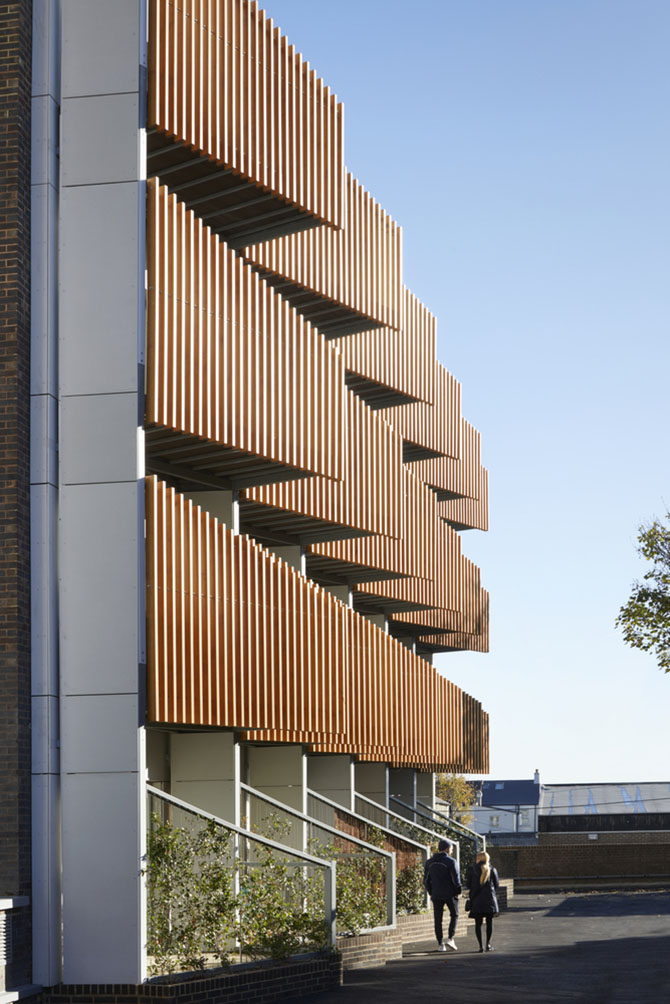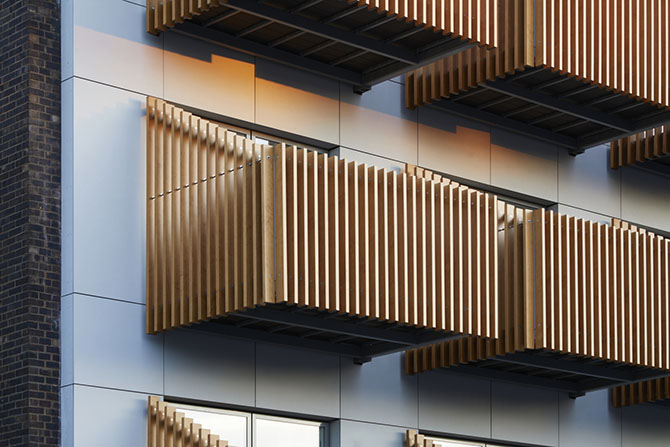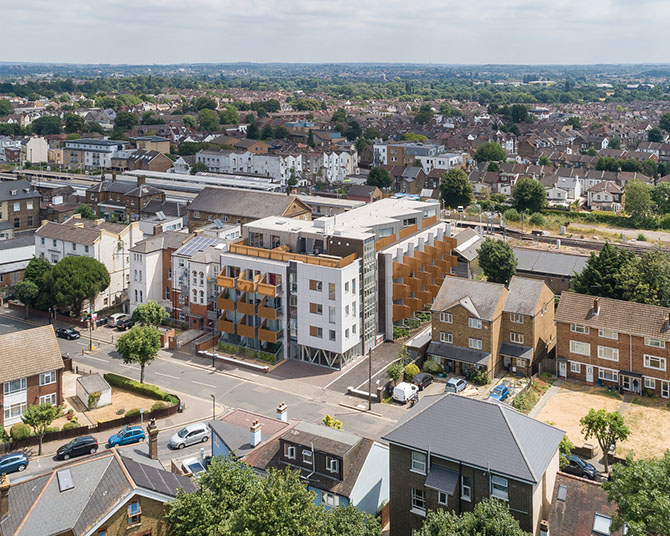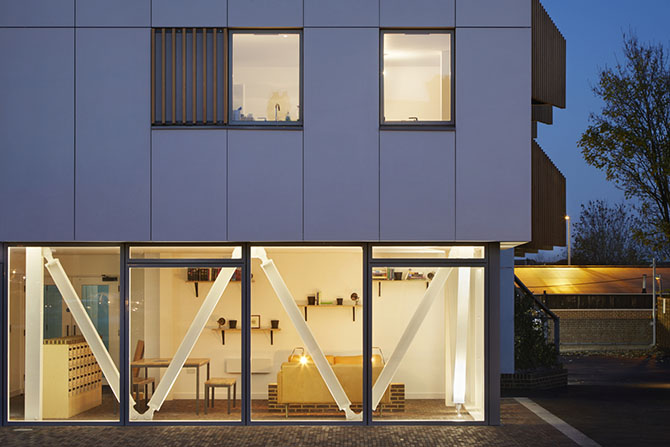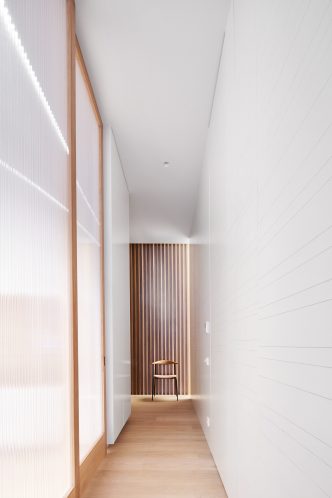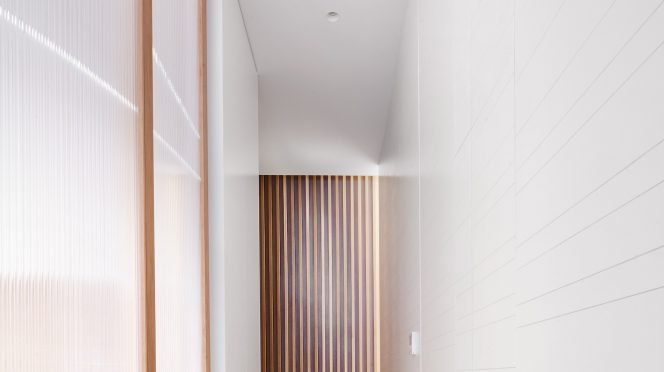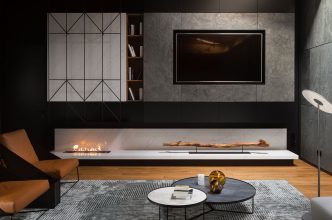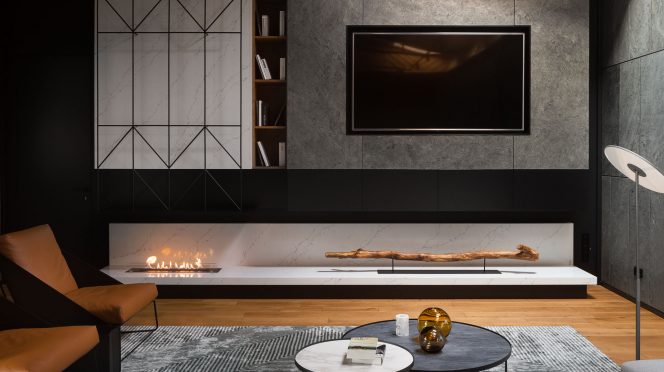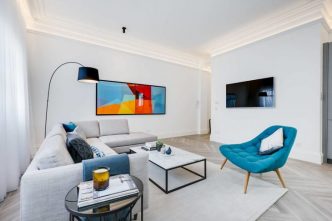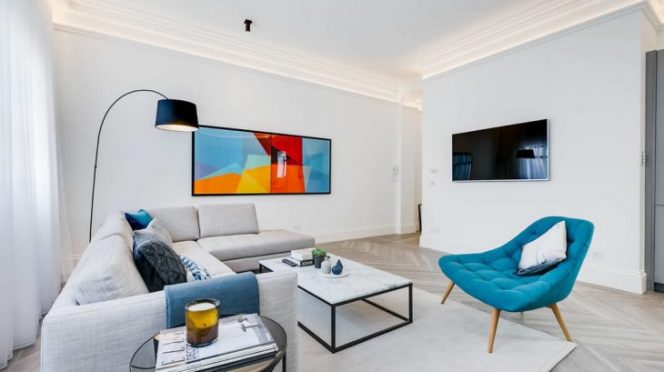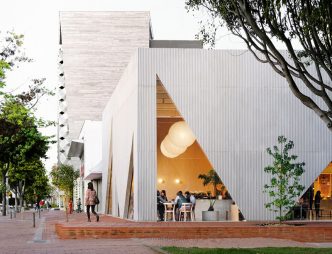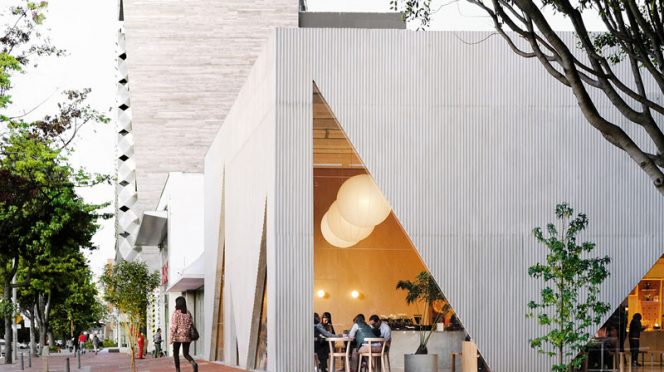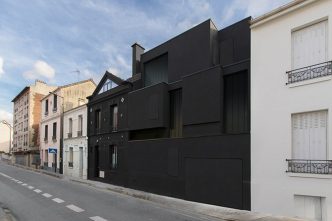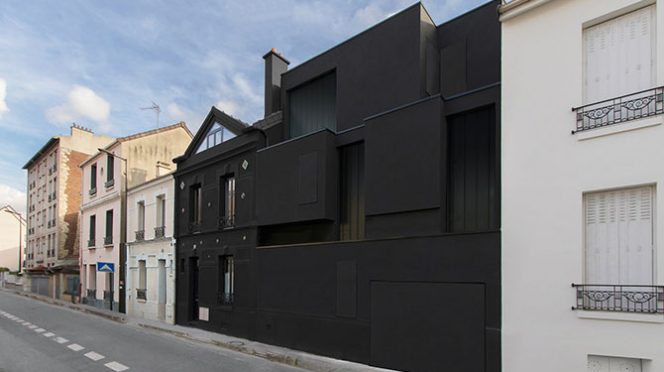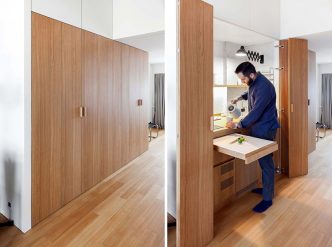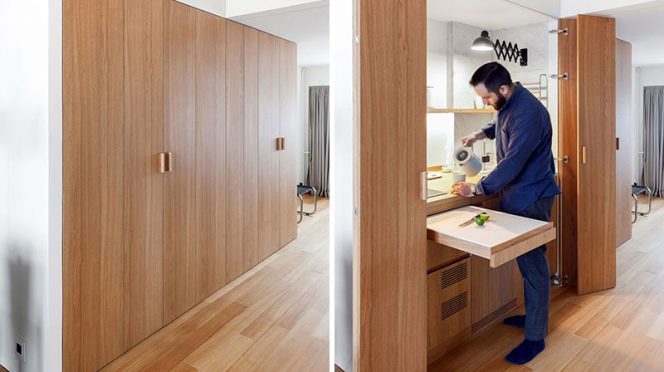alma-nac designed this stunning housing complex located in London, United Kingdom.
From the architects: Paxton House is an innovative housing solution on a complex site, for Joseph Homes in Croydon, South London. Forty-three dwellings and a series of shared spaces have been carefully crafted to occupy an existing concrete-framed building, a former office block which had been left vacant and was being used by squatters.
Avoiding a traditional central corridor arrangement, the architects have achieved a very different type of apartment block. Through the design of an external circulation strategy, every single apartment has been created as dual aspect, with a south facing living space.
Along the building’s tight perimeter, each room on the south facing elevation is a living space which makes use of an angled balcony that provides privacy and directs views over nearby train tracks. Here, acetylated timber ensures the sustainable longevity of the cladding. This tightly set, animated facade naturally led to an angled balustrade design, ensuring privacy from neighbouring apartments and adjoining gardens alike, while maximising vistas from inside.
Angled balconies and external circulation mean Paxton House can boast sun-filled apartments that avoid looking north.
Paired apartments share entrance lobbies, recessed into the centre of the floorplan, enabling the use of efficient, slim layouts. Such an approach allows flats to have a more neighbourly feel, representing a departure from the typically anonymous multi-unit residential living.
Furthermore, Paxton House offers a spare bedroom and workspace. These are shared by the whole building and the latter can be found as part of the building’s generously sized lobby, accessed from Cargreen Road. The spare bedroom, which re-addresses the requirements of apartment living in London, can be found on the top floor where a shared roof terrace with a built-in bbq also resides, all of which complete the strong communal aspect of Paxton House.
To minimise the impact of external circulation, the walkway’s design is specific in terms of its physical position, lighting and acoustic performance. These walkways adopt chipped rubber, commonly found in children’s playgrounds, to ensure acoustic dampening and create a characterful, experiential mode of passage.
These routes through the building are defined by specific material palettes with floors being colour matched according to level. On the ground floor is brick paving which extends into a courtyard outside, softening the threshold between internal and external spaces.
The ground floor also houses eight one-bed apartments, a studio apartment and a shared living room-cum-workspace. The first, second and third floors offer nine one-bed dwellings along with a studio and the fourth floor comprises three two-bedroom apartments, a spare bedroom and shared roof terrace.
Photography by Jack Hobhouse
